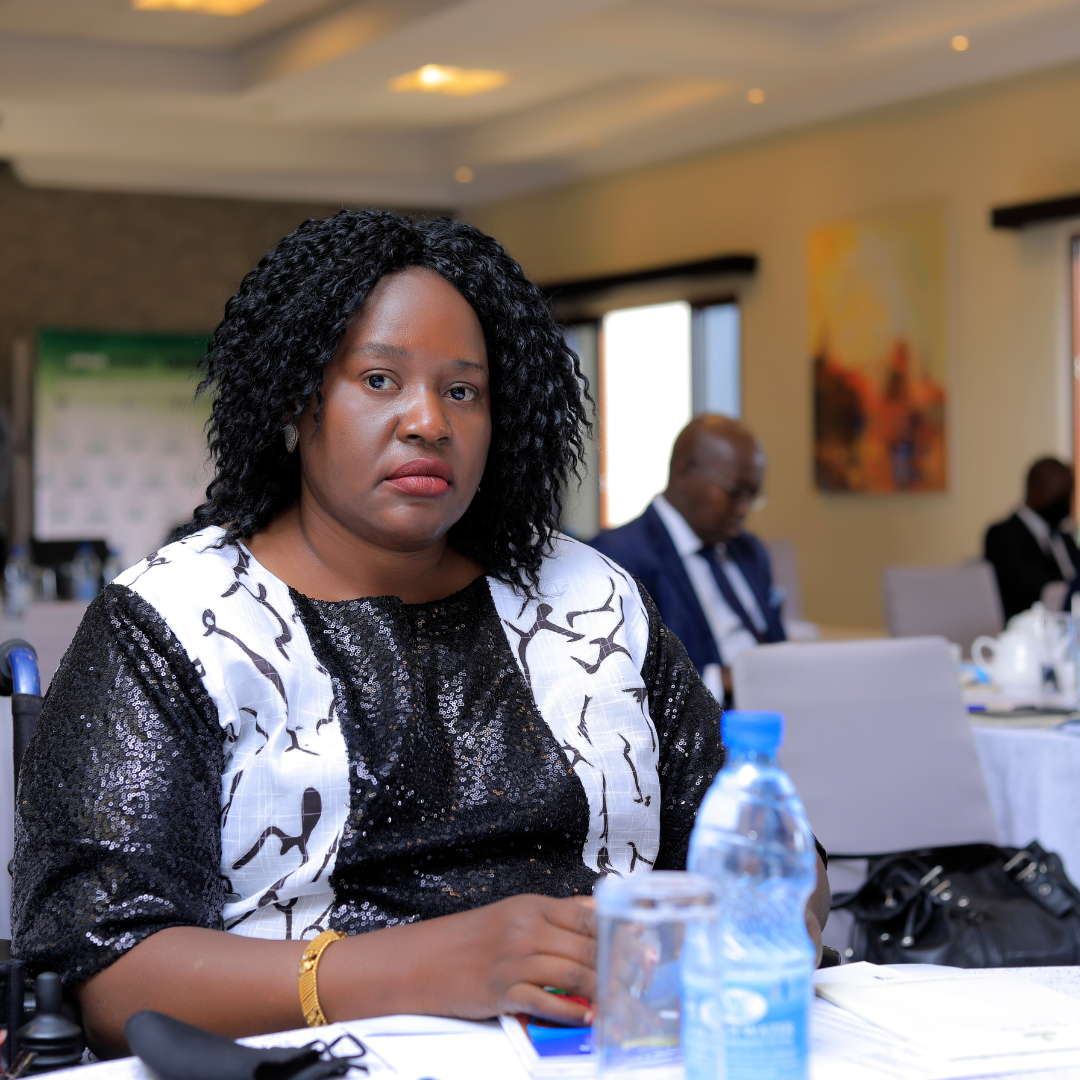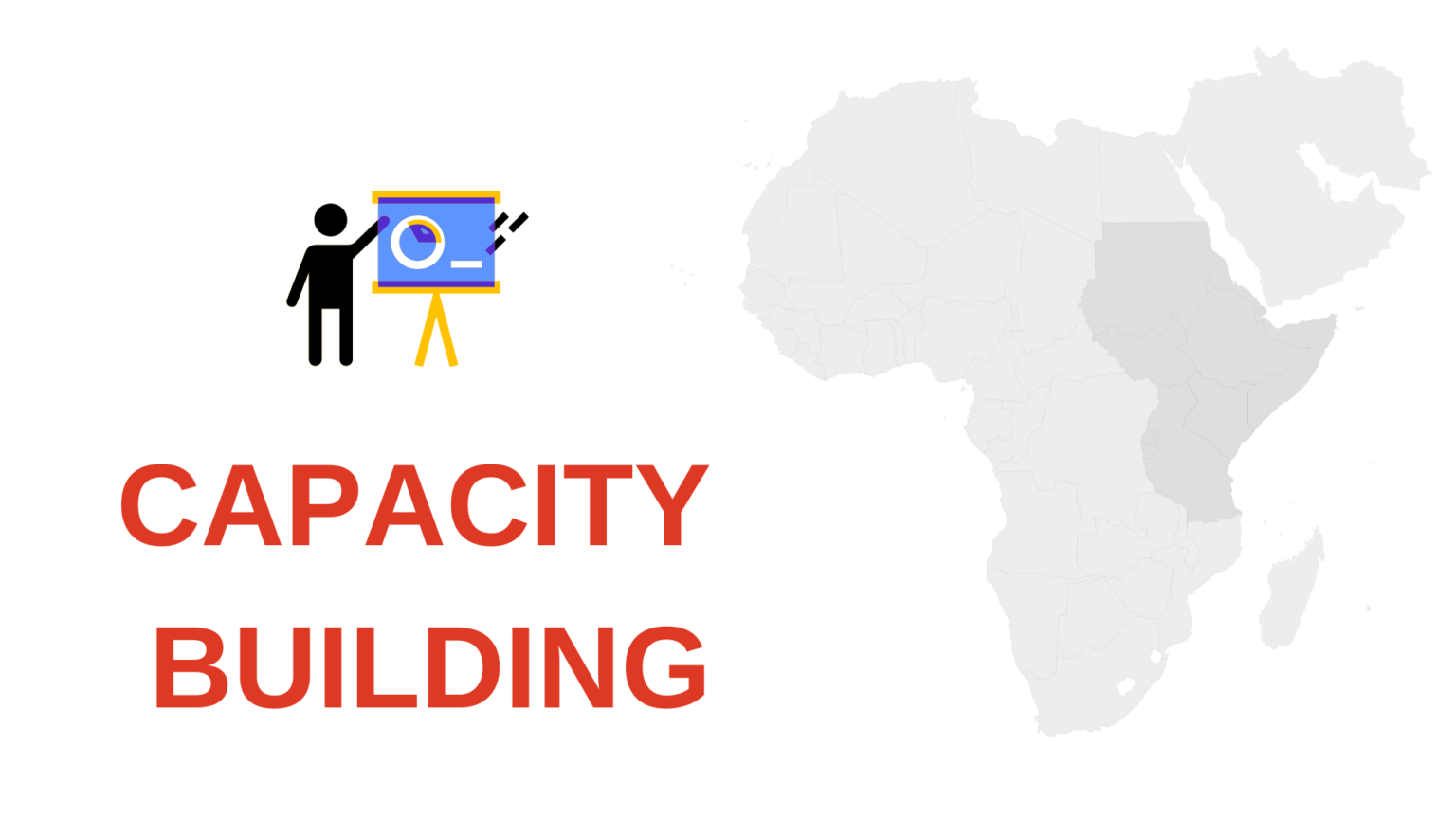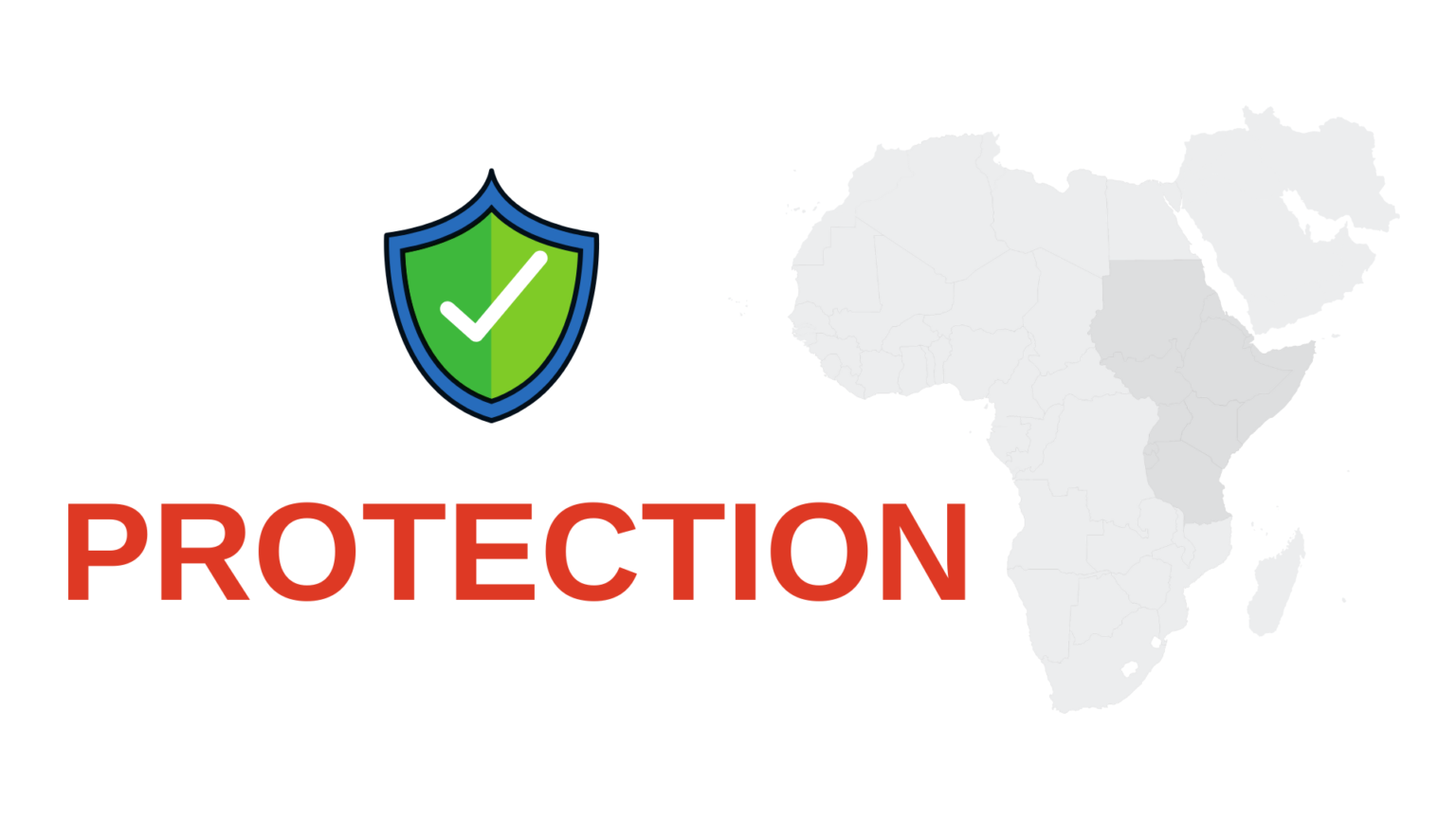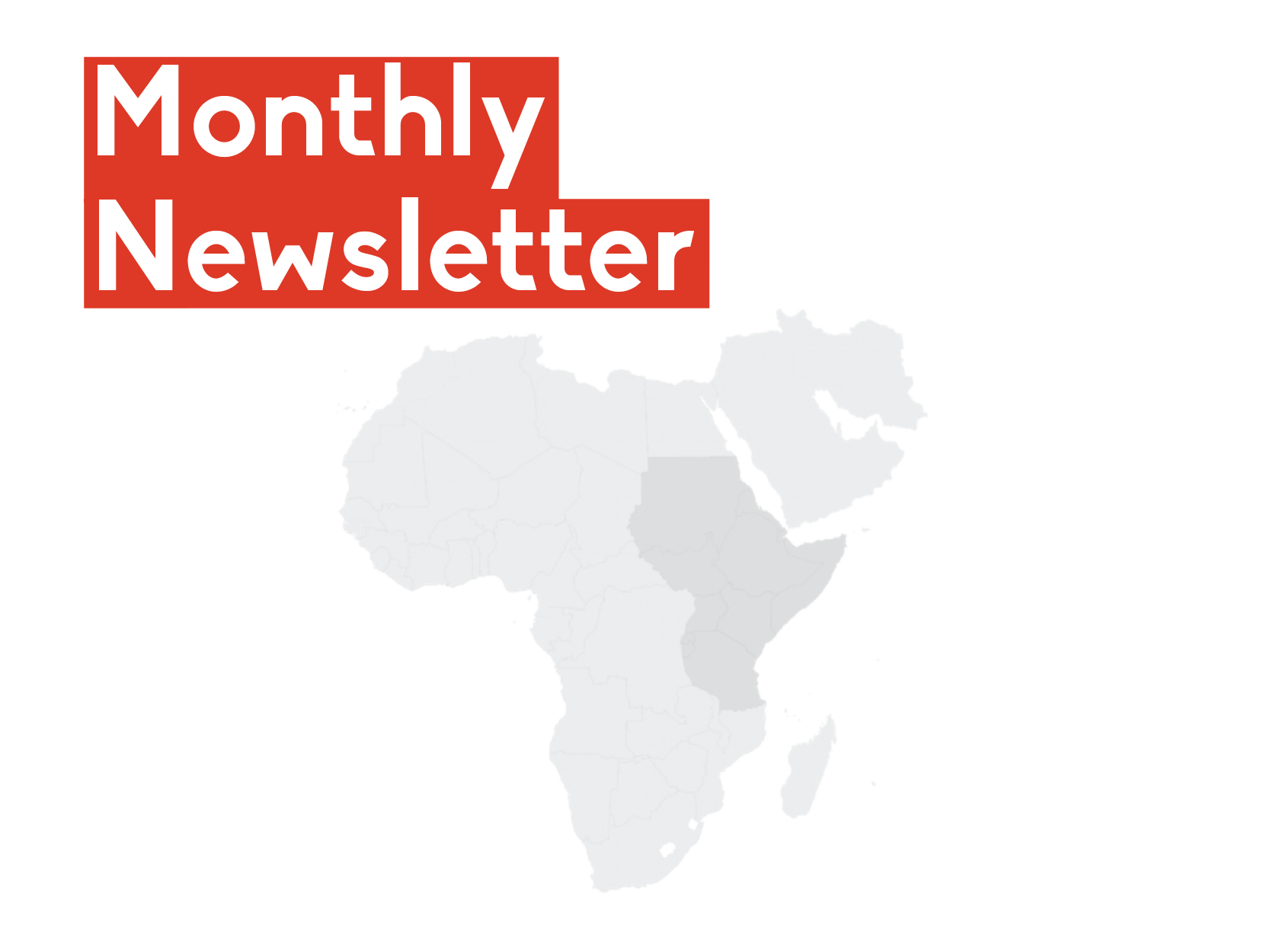Dear Colleagues,
Welcome to 2024! I hope you are all up and running already! All around us, human rights crises continue unabated as in 2023 – the conflict in Sudan rages on, so does the suffering in Palestine and the invasion in Ukraine, and all their attendant and cumulative human suffering. The challenge is for all of us to pursue peace wherever we are, whenever we can.
It is a challenge that I put to our wider network of human rights defenders (HRDs) and coalition members when I met over 70 of them in a virtual session to map out our priorities for the year. We will be seeking to strengthen collaboration and solidarity, and to draw on each other’s experiences and networks as we seek to confront the diverse human rights challenges facing our wider continent.
Most of this work requires constant consultation, collaboration, and engagement with all stakeholders. So, mid this month, I joined civil society leaders to engage with the African Union (AU) and the European Union (EU) delegations ahead of the 19th AU-EU human rights dialogue in Addis Ababa, which is devoted to harnessing areas of collaboration in pursuit of common human rights goals. While there, I met with other stakeholders including colleagues, civil society actors and diplomatic missions to discuss strategic areas of cooperation.
We will continue to pursue such stakeholder engagements alongside our core day-to-day work to protect and offer life-saving support to HRDs at risk. Thank you for continuing to partner with us on this mission, and we look forward to even more collaboration in 2024.
Hassan Shire,
Executive Director, DefendDefenders
Chairperson, AfricanDefenders
Human Rights Defender of the Month:Pamela Angwench Judith

For most of her life, Pamela Angwech’s existence has always been a defiant and simultaneous act of survival and resistance. In 1976 when she was born, the anti-Amin movement was gathering pace, and her family was one of the earliest victims of the then dictatorship’s reprisals in Northern Uganda.
Her father, a passionate educationist in Kitgum district was one of the most vocal critics of the dictatorship’s human rights excesses, which made him an obvious target of the state’s marauding vigilantes.
Fearing for his life and that of his young family, he escaped North, to Sudan, leaving behind his wife, then pregnant with Pamela, to follow him as soon as she could.
Updates from DefendDefenders

On 24 January, DefendDefenders held a legal consultation meeting for newly exiled Sudanese HRDs in Uganda, which was attended by 25 HRDs (11 female, 14 male).
From 29 -31 January, DefendDefenders facilitated outcome harvesting for six HRDs from the Sahel regional networks – the Burkinabe HRDs coalition, Malian HRDs Coalition and Nigerian HRDs Network. Of the six, three were male and three were female.

We are preparing for the 55thsession of the UN Human Rights Council (HRC55, 26 February-5 April 2024). Beyond participating in the usual High-Level Segment (HLS), our priorities will be South Sudan (with the objective of extending the mandate of the UN Commission (CHRSS)) and Sudan, as the High Commissioner will present a report.
AfricanDefenders chaired the first follow-up virtual regional HRDs protection network meeting in which partners shared on key regional developments impacting civic space since the in-person meeting in November 2023.
AfricanDefenders participated in the Alliance for Land Indigenous Environment Defenders (ALLIED) partners meeting to discuss solidarity for HRDs working with the Ogiek community and to raise the support necessary to enable the full enjoyment of the full menu of rights.
From 23 – 31 January, DefendDefenders participated in the African Union (AU) – European Union (EU) civil societies seminar on human rights in Addis Ababa, during which we held meetings with the Swedish Ambassador to Ethiopia, IGAD and the AU, and met with the SIDA regional office in Addis Ababa. We discussed the situation of HRDs in the region and reaffirmed the importance of CSO collaboration in tackling challenges to HRD safety and wellbeing.
On 30 January, DefendDefenders joined Ethiopian HRDs to mark the 10th anniversary of the Ethiopia Human Rights Defenders Centre (EHRDC) in the capital Addis Ababa. DefendDefenders applauded EHRDC for providing a critical rallying point for Ethiopian HRDs and pledged to continue the Centre to improve its capacity and expertise in HRD protection.

From 1 – 31 January, we received a total of 150 requests for emergency support from HRDs, out of which 35 requests were approved. 16 of those approved were from Uganda, six from Somalia, 10 from Sudan, and one case each from Kenya, Burundi, and South Sudan. Of the rest, three requests were referred to partner organisations, 73 were rejected, while 39 requests are still under verification.
Opportunities
Call for Applications: Request for proposals for consultancy to develop a four year (2024-2027) gender equality and social inclusion strategy for the Consortium for Human Rights and Media in Sub-Saharan Africa
Call for Nominations: EU Human Rights Defenders Award 2023
Call for Applications: Shelter City program for Human Rights Defenders at Risk
Country Updates:
Burundi
Human Rights Watch condemned President Evariste Ndayishimiye’s anti—LGBTQI remarks, warning that they risked endangering the safety of one of the already most marginalised communities in Burundi. The warning follows statements by President Ndayishimiye in December 2023, in which he inferred that homosexuality is “a curse” and that LGBTQI persons should be “stoned, “attracting widespread condemnation from local and international actors. Burundi already criminalises same sex relations since 2009.
International Civil Society Alliance CIVICUS added Burundian journalist Floriane Irangabiye to its Stand As My Witness campaign, which advocates for the release of wrongly imprisoned journalists, activists, dissidents and human-rights defenders around the world. In 2019, Irangabiye co-founded “IGICANIRO,” a Rwanda-based online radio station critical of Burundi’s government. On August 30, 2022, Burundi intelligence personnel arrested Irangabiye while she was in Burundi for a relative’s funeral. Authorities falsely charged her with endangering the integrity of the nation, for which she was convicted and sentenced to 10 years in prison.
Eritrea
42 former Eritrean prisoners referred to the country’s prison system as “a gulag,” characterized by beatings, hunger, stress positions and underground cells and other forms of torture, providing further indictment of the Horn of African country’s repressive political and criminal justice system. In a report by The Washington Post, the previous inmates spoke of the randomness and ubiquitousness of the prison system, noting that it was the equivalent of going to college.
Kenya
On 27 January 2024, Kenyan women and feminists took to the streets to protest the rampant cases of femicide in the country, following a spate of unexplained murders of Kenyan women across the country. The protests dubbed “Feminists March Against Femicide” took place in 11 of the country’s 47 counties and sought to dramatize the extent of the femicide problem in the country. Kenya has one of the highest cases of femicide in Africa, with a study by the Africa Data Hub estimating that there have been around 500 femicide victims in the country between 2016 and 2024.
Kenya’s high court ruled against the government’s plan to send police officers to Haiti under a UN Mission to tackle gang violence in the country. The High Court noted that such a mission would be illegal in the absence of a reciprocal arrangement with the host government, scattering the Kenyan government and the UN Security Council’s plans, which had counted on Kenya deploying in the Caribbean country at the start of the year.
South Sudan
The embassies of Norway, United Kingdom and the United States jointly condemned attacks on a United Nations Interim Security Force for Abyei (UNISFA) in which two peacekeepers were killed, warning against heightened violence between communities living in and around the Abyei Administrative Area. The attacks were the latest in spates of sporadic inter-communal violence across South Sudan, which the United Nations Mission in South Sudan has warned does not auger well for the country’s planned elections.
The International Rescue Committee ranked South Sudan third in its 2024 emergency watchlist, with the committee pointing out the conflict in Sudan, the country’s looming general election and famine as some of the leading risk factors. Already, the committee pointed out that 9million people – 72% of the country’s population need humanitarian assistance, while the country’s first presidential elections since independence scheduled for December 2024 threaten to reawaken old rivalries that have always kept South Sudan on the verges of instability.
Sudan
The Armed Conflict Location & Event Data Project(ACLED) has warned that the war in Sudan is unlikely to end soon, thanks to the Rapid Support Forces’ recent gains in Khartoum, Darfur, and the absence of diplomatic efforts to secure a ceasefire. An indefinite continuation of the war would be catastrophic for the civilian population, ACLED has warned. Already, nearly 25 million people — over half of Sudan’s population — require humanitarian assistance, with over 20 million facing acute food insecurity. 7.2 million people have been displaced in the first eight months of the conflict, including 1.4 million crossing into neighboring Chad, South Sudan, Egypt, and Ethiopia.
The UN Fact-Finding Mission on Sudan began its work, calling on Sudan’s war protagonists to end the nation’s armed conflict, uphold their obligations to protect civilians and ensure perpetrators of grave violations and crimes are held to account. The Fact-Finding Mission, set up by a landmark UN Human Rights Council resolution in October last year, is mandated to investigate rights violations that have dogged the country’s now 9months conflict with a view of pursuing accountability for victims.
Tanzania
Tanzania’s opposition groups called for far-reaching constitutional reforms and a reconstitution of the electoral commission in demonstrations in the country’s commercial capital, Dar-es-Salaam. The demonstrations led by Opposition leader Tunde Lissu were the first since President Samia Suluhu lifted a ban on political rallies a year ago, which paved way for Mr. Lissu’s return from exile. It is not yet clear whether President Suluhu will heed the opposition’s demands.
Uganda
Human Rights activists have opposed a new motorist tracking and transport monitoring system by the Ugandan government as an invasion of the right to privacy. The system, one of the security features mooted by the government as an anti-dot to urban crime and the spate of political assassinations that have rocked Kampala in the last few years would see motor vehicles and motorcycles fitted with movement tracking software that would enable security to monitor their movements fulltime.

